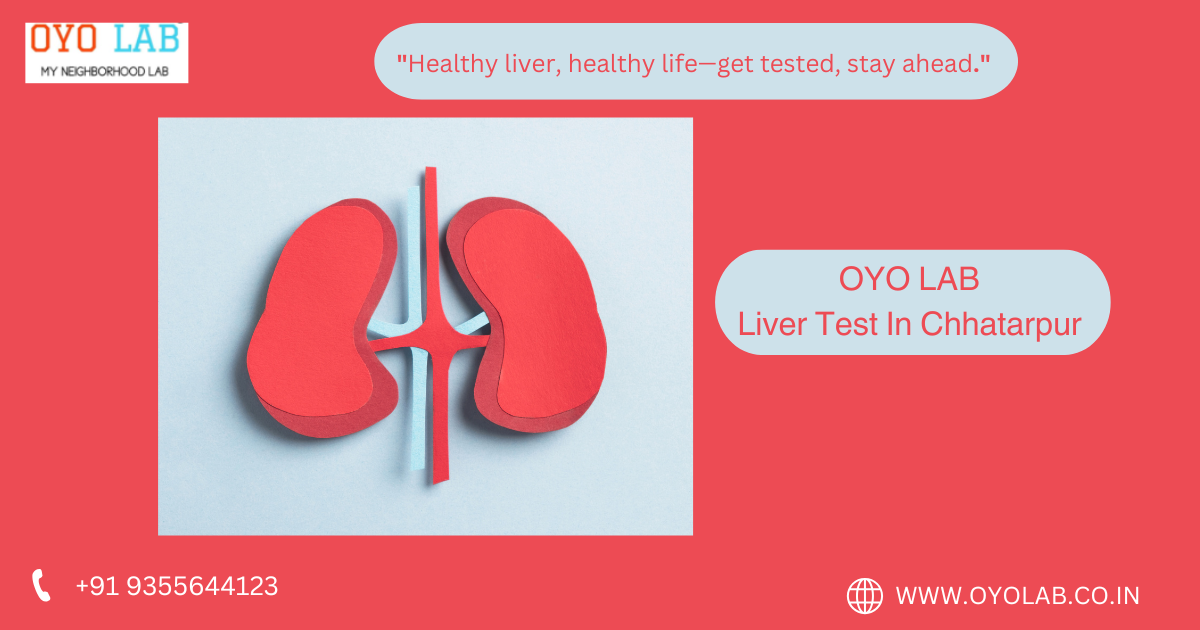
Liver Test In Chhatarpur
By Shilpa | March 06, 2025
What Is Liver Test ?
A Liver Test generally refers to a test conducted in real-time to assess the functionality, performance, or accuracy of a system, software, or process under actual operating conditions. The meaning of a live test depends on the context in which it is used.
Importance Of Liver Test
A liver test, also known as a liver function test (LFT), is crucial for assessing liver health and diagnosing liver-related conditions. Here’s why it is important:
1. Detects Liver Diseases Early
- Identifies conditions like hepatitis, fatty liver disease, cirrhosis, and liver cancer before symptoms appear.
- Early diagnosis allows for timely treatment and better outcomes.
2. Monitors Liver Function
- Evaluates how well the liver is performing essential functions like detoxification, protein synthesis, and bile production.
- Helps assess overall liver health.
3. Helps Diagnose Unexplained Symptoms
- If you experience jaundice, fatigue, nausea, abdominal pain, or dark urine, a liver test can help determine the cause.
4. Tracks Effects of Medications & Alcohol
- Some medications and excessive alcohol use can harm the liver.
- Regular liver tests help ensure no damage is occurring.
5. Supports Management of Chronic Conditions
- Essential for patients with diabetes, obesity, or high cholesterol, as these conditions can affect liver health.
- Helps in monitoring and adjusting treatment plans.
6. Assists in Evaluating Treatment Effectiveness
- For individuals undergoing treatment for liver disease, LFTs help track progress and effectiveness of therapies.
Benefits Of Liver Test
A Liver Function Test (LFT) is essential for maintaining liver health and detecting potential issues early. Here are the key benefits:
1. Early Detection of Liver Diseases
- Helps identify hepatitis, fatty liver disease, cirrhosis, and liver cancer before symptoms worsen.
- Early diagnosis allows for timely treatment and prevents complications.
2. Monitors Liver Health
- Evaluates how well the liver is functioning in detoxifying blood, producing proteins, and aiding digestion.
- Helps detect liver damage from infections, alcohol, or toxins.
3. Helps Identify the Cause of Symptoms
- If you experience jaundice, nausea, fatigue, abdominal pain, or dark urine, a liver test can help determine the underlying cause.
4. Tracks the Effects of Medications & Alcohol
- Some medications (e.g., painkillers, cholesterol drugs) and excessive alcohol intake can harm the liver.
- Regular testing ensures that these substances are not causing liver damage.
5. Supports Chronic Disease Management
- People with diabetes, obesity, or high cholesterol are at higher risk of liver issues.
- Liver tests help in monitoring and managing these risks.
6. Assesses Treatment Effectiveness
- For individuals undergoing treatment for liver conditions, liver tests help doctors track progress and adjust medications accordingly.
7. Prevents Severe Complications
- Liver diseases often progress silently. Regular testing helps prevent liver failure and serious health problems by catching issues early.